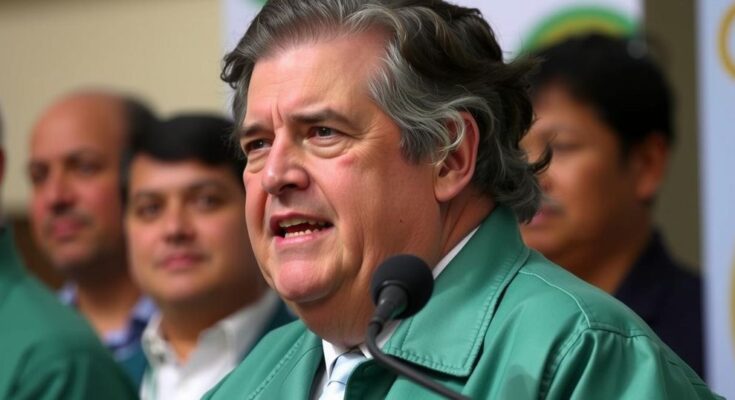Bolivia’s unique judicial elections have drawn criticism for their politicization and lack of transparency, raising questions about the integrity of the judiciary. As the country prepares for its elections, a backdrop of political maneuvering complicates the path forward, potentially undermining democratic principles. With only a partial election occurring, past experiences suggest low voter participation and skepticism regarding the legitimacy of elected judges. The evolving political landscape indicates a critical juncture for Bolivian democracy.
Bolivia is unique in holding popular elections for its top judicial positions, a practice that has garnered significant criticism and controversy. While campaigning is ostensibly prohibited, candidates find ways to promote themselves through unconventional means, demonstrating a widespread lack of voter awareness about the candidates. Critics, including legal experts and citizens, argue that the system transforms courts from impartial arbitrators into politically driven entities. This election, set against a backdrop of political intrigue and a divided ruling party, threatens to exacerbate issues of judicial integrity and independence, particularly in view of recent constitutional challenges and delays in the electoral process.
As of 2023, Bolivia’s electoral framework for judges has produced low voter turnout, with many opting for null or blank votes due to a perceived lack of transparency during the selection process. Notably, in previous judicial elections, the selection of candidates often favored allies of then-President Evo Morales, who championed these elections as a means of democratizing the judiciary while critics decried the politicization that ensued. Morales himself faced backlash over court manipulation after losing a referendum that barred him from running again, ultimately leading to his resignation amid claims of electoral fraud.
The political landscape remains contentious as current President Luis Arce navigates his complex relationship with Morales, particularly concerning control over the Constitutional Court. The court has intervened in election timelines, drawing criticism from human rights organizations about the integrity of the judicial system. As both leaders maneuver for power, the legitimacy of this election cycle remains in question, with only a fraction of judicial posts open for public vote despite the significant implications it holds for Bolivian democracy.
The unique case of Bolivia, as the only country worldwide conducting popular votes for judicial positions, raises significant questions regarding judicial independence and the potential for political manipulation. The electoral process for judges is relatively new, having been introduced over a decade ago as a reform program aimed at democratizing the judiciary and mitigating corruption. However, it has often been criticized for creating a situation where judicial appointments are viewed as rewards for political loyalty rather than merit. With the recent overhaul attempts in Mexico, observers highlight Bolivia’s elections as a potential cautionary tale for other nations considering similar reforms in their judicial systems.
The ongoing judicial elections in Bolivia illustrate the complex interplay between politics and law within the region. While the initial intention behind the popular vote was to increase transparency and reduce corruption, the reality has emerged as a critical commentary on the potential pitfalls of politicizing the judiciary. As Bolivia prepares to cast its ballots, the broader implications of this electoral framework resonate beyond its borders, prompting scrutiny from global observers and neighboring countries contemplating similar reforms.
Original Source: abcnews.go.com




